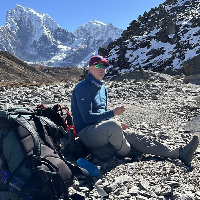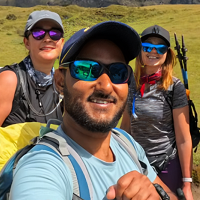Altitude sickness, also known as Acute Mountain Sickness (AMS), is a pathological effect of high altitude on humans, caused by acute exposure to low partial pressure of oxygen at high altitude. It commonly occurs above 2,400 meters (8,000 ft.). It presents as a collection of nonspecific symptoms, acquired at high altitude or in low air pressure, resembling a case of "flu, carbon monoxide poisoning, or a hangover". However, most people can ascend to 2,400 meters (8,000 ft.) without difficulty.
Primary Symptoms of Altitude Sickness:
- Lack of appetite, nausea, or vomiting
- Fatigue or weakness
- Dizziness or lightheadedness
- Swelling of hands, feet, and face
- Insomnia
- Shortness of breath upon exertion
- Nosebleed
- Persistent rapid pulse
- Drowsiness
- General malaise
Prevention:
Ascending slowly is the best way to avoid altitude sickness. Avoiding strenuous activity such as skiing, hiking, etc. in the first 24 hours at high altitude reduces the symptoms of AMS. Alcohol and sleeping pills are respiratory depressants, and thus slow down the acclimatization process and should be avoided. Alcohol also tends to cause dehydration and exacerbates AMS. Thus, Marvel Adventure strictly suggests avoiding alcohol consumption in the first 24–48 hours at a higher altitude.
Guides and porters from Marvel Adventure are very much familiar with this problem due to their experience. All of them are trained with basic medical trainings and hence they definitely can help you.














